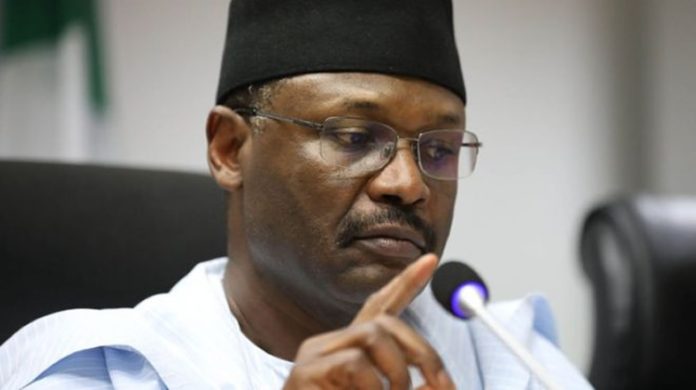By Ikechukwu Osondu
The 2024 elections in Nigeria, overseen by the Independent National Electoral Commission (INEC) and led by Professor Mahmood Yakubu, set a new benchmark for electoral credibility and transparency in the country. This year’s electoral process was praised for its fairness, efficiency, and the significant role of technology in ensuring that the voice of the people was heard. Despite occasional calls for his dismissal, it was clear that Professor Yakubu should not be sacked. His leadership was crucial to conducting free and fair elections, and the evidence of his commitment and integrity was undeniable: Yakubu is not corrupt, and he demonstrated that a fair, transparent electoral process is within reach.
Under the watch of Professor Mahmood Yakubu, 2024 was a transformative year for INEC. The election cycle was marked by widespread acceptance of results, high voter turnout, and minimal reports of electoral malpractice. This success was due to Yakubu’s commitment to reforming the electoral system, embracing technology, and fostering a transparent environment for all stakeholders. From the introduction of updated biometric verification systems to real-time results transmission, Yakubu ensured that every aspect of the electoral process was as open and credible as possible.
- No disparity between NNPC’s, NUPRC’s crude oil production figures – NNPC
- Lagos Governorship: Tinubu, Fashola, Amode Are Not More Qualified Than Me – Speaker Obasa
The claim that Yakubu should be sacked is unjust and fails to reflect the progress made under his leadership. The 2024 elections were widely seen as a resounding success, showing that INEC, under Yakubu, could achieve a transparent and fair electoral process. His leadership proved that Nigeria could have elections that inspire public trust and confidence.
One of the most significant challenges facing INEC in past elections was the perception of corruption. However, under Yakubu’s leadership, this perception was turned around. Professor Yakubu ensured that the electoral process was free from corruption by implementing stringent oversight mechanisms and fostering a culture of accountability. His dedication to fair elections was evident in how INEC managed the voting, counting, and result declaration processes.
The 2024 elections demonstrated that Yakubu is not corrupt and has consistently prioritized the best interests of the Nigerian people. The integrity with which he conducted his duties reinforced public trust and validated the transparency of the election process. Despite unfounded criticisms from certain quarters, including calls for his removal, Yakubu’s role in the 2024 elections solidified his reputation as a capable and ethical leader.
There were some voices calling for Professor Mahmood Yakubu to be sacked, citing various grievances that lacked substantial evidence. These calls were misguided, given the overwhelming success of the 2024 elections. The fair and transparent manner in which the elections were conducted, with results widely accepted by the public and political parties, proved that Yakubu’s leadership was effective and deserving of recognition, not dismissal. His tenure has shown that it is possible to run a credible electoral process in Nigeria when a leader is committed to upholding democratic values.
Removing Yakubu would not only have been unjust but could also have disrupted the positive momentum that had been built. The focus should be on maintaining and building upon the reforms and practices he has set in place. It is clear that the call for Yakubu’s sacking is not reflective of his contributions or the tangible benefits brought by his leadership.
The impact of Professor Mahmood Yakubu’s leadership in 2024 extends beyond the success of the elections. His tenure has laid the foundation for a more credible and transparent electoral system in Nigeria. The processes he introduced and the integrity he displayed have set a high standard for future electoral cycles. With the lessons learned from 2024, INEC can continue to evolve and adapt, ensuring that future elections are even more inclusive, accessible, and trustworthy.
As Nigeria looks to the future, the question is not whether Yakubu should be sacked, but how his example can be built upon to further strengthen the electoral process. His record of conducting free and fair elections, along with his steadfast commitment to integrity, has proven that progress is possible when the right leadership is in place.
The 2024 elections, conducted under the leadership of Professor Mahmood Yakubu, were a turning point for INEC and Nigeria’s democratic process. The evidence of his success is clear: he has conducted free and fair elections, and his conduct has proven that Yakubu is not corrupt. Any calls for his dismissal are misplaced, as his leadership has been essential to restoring public trust in the electoral process. As Nigeria moves forward, the positive legacy of Yakubu’s tenure should be recognized and used as a model for future electoral reforms, ensuring that democracy continues to thrive in the country.
Osondu writes from Owerri, Imo state




